The comedian and consumer affairs champion discusses breaking free from formats, the pull of live TV and going viral
Asked how he feels about being called an attention seeker, Joe Lycett grins. “Of course I enjoy attention. I’m a stand-up comedian.”
We’re discussing his high-profile stunt late last year, when he issued an ultimatum to footballing legend David Beckham to drop his reported £10m ambassadorship deal with Qatar during the World Cup over the country’s treatment of LGBTQ+ people.
In a video, which went viral and made headlines around the world, Lycett said if Beckham didn’t renounce the deal then he would shred £10,000 of his own money.
A week later, he dropped the wads of cash into a wood-chipper on a livestream that was viewed by millions – but the following day revealed the shredding had been faked, with the money instead being donated to LGBTQ+ charities. The lead-up, preparation and execution of the stunt was all captured for a Christmas special episode of his Channel 4 consumer affairs show, Joe Lycett’s Got Your Back.
“I put myself and my career at considerable risk – my life would be a lot simpler if I didn’t do these things”
The incident has been widely praised, but also attracted critics, many of whom switched from complaining about the optics of shredding money in a cost-of-living crisis to dismissing it as “attention seeking” when the fake-out was revealed.
It is, Lycett points out, a completely accurate observation. “It would be entirely pointless if I wasn’t seeking attention,” he says. “What I will say is that I put myself and career at considerable risk – my life would be a lot simpler if I didn’t do these things.”
Alternative route to fame
Lycett’s cheeky, combative approach to making TV has made waves for the comedian, who has sidestepped the more traditional routes to success for comedy talent, such as panel shows or entertainment formats.
In comparison with the veritable bear pit of stand-up, where “the audience is God”, he says he finds these types of shows lacking.
“If the audience doesn’t laugh at a stand-up gig, it’s a failure, whereas in TV it can easily be cut during a three- to four-hour record,” he says.
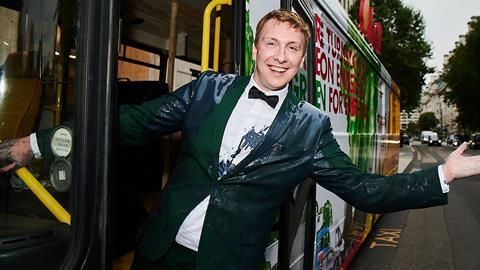
“I’ve hosted pre-recorded studio things before and I find it saps my creative energy – it doesn’t feel as good as stand-up comedy does.”
Instead, he’s turned to consumer affairs – a genre that feels especially relevant given the current economic climate, and where talent such as Martin Lewis have become household names – to blend presenting with campaigning.
Got Your Back has shown Lycett taking on delivery company Hermes (now rebranded Evri) and changing his name to Hugo Boss in protest at the fashion company’s heavy-handed approach to protecting its trademark.
“You get a real buzz from taking on companies,” Lycett says. “Had I not done it, I probably would have ended up in the gameshow space, but it’s hard to turn back from consumer affairs because everything else feels less substantial.”
Joe Lycett on….
“I think it’s had its day. It’s a shame because it used to be a great creative space, but now that’s suffocated in seconds.
There was a period where commissioners were obsessed with what Twitter was saying. Thankfully, it feels like now that’s far less important.”
WHAT HE’S WATCHING
“The reboot of The Big Breakfast was so good. It feels like Mo [Gilligan] is destined for global domination. He’s so talented, professional and hard-working. It’s the live stuff that’s getting me excited these days.”
WRITING SCRIPTED COMEDY
“There’s a million stories I’d love to tell, but I don’t think they’re commissionable. I’ve seen friends go through the process of scripted and they seem a bit broken by the end of it, but if the right thing happened at the right time then I’d absolutely do it. I’m not angling for it at the moment though.”
RICHARD SHARP
“I don’t know the full details, but my instincts are that he should step down. It brings the impartiality of the BBC into disrepute, which they’re obsessed with at the moment.
I will say that Tim Davie was asked about me in a committee after the Kuenssberg episode, and neither of them threw me under the bus so I should be very grateful to them. But I’m sure internally, Sharp probably isn’t a fan of mine, so there’s no love lost there.”
A strength of Lycett’s as a consumer affairs presenter is his ability to cut through online, reinvigorating the genre for a new generation. He is no stranger to going viral, and his use of social media throughout the Beckham stunt allowed audiences to join him on every step of the nerve-racking lead-up to the faked shredding and undoubtedly helped boost the festive special episode.
Unlike many of his viral moments of the past 12 months, the stunt was carefully calculated by Lycett and the Rumpus Media team.
‘Going viral’ online is a tricky art form. When it comes to raising awareness of complex issues, he says, the main challenge is not to obscure the message – and the solution is to be “laser-focused”.
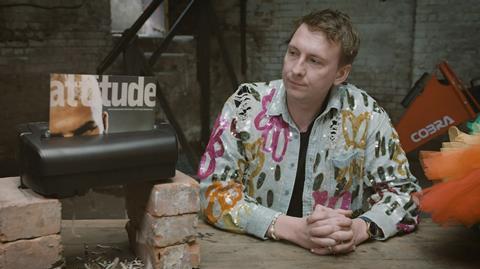
The team on Got Your Back frequently receive messages from people with a 20 bullet-point list of things their landlord is doing wrong but, Lycett says, a stunt won’t work unless there’s one aspect that can be zoned in on.
“There are a lot of injustices surrounding the World Cup and Qatar, such as workers’ rights, but I’m not an expert on those,” he explains. “Queer rights is closer to my world, so we focused on that.”
The more research he did, the more frequently Beckham’s name popped up.
“Because of his background as a gay icon and his level of celebrity, and because no one to my knowledge had ever gone for him before, it felt like there were good blocks to create something,” Lycett says.
After multiple iterations of the stunt, involving statues of the footballer made from different materials being symbolically destroyed, the team fell into discussion about the controversial 1990s performance art piece K Foundation Burn a Million Quid and “began to twig” that it should centre around money and an ultimatum.
“I thought that would generate some press, and it certainly did,” Lycett says.
Although the set-pieces on Got Your Back often require weeks of preparation and involve work from legal teams, Lycett still worries that his TV performances aren’t as polished as his stand-up, which he has developed and refined over years.
“For TV, I have to operate on a different level, and in some ways consumer affairs is a get-out,” he says. “I can go, ‘Well, at least we saved someone £1,000, so who gives a shit if it didn’t get that many laughs’.”
Ironically, for someone who likes to be prepared for his performances, many of his most iconic moments have been impulsive.
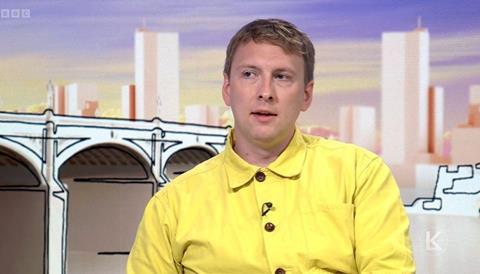
In September last year, he adopted a Liz Truss-loving persona on Laura Kuenssberg’s Sunday morning BBC1 politics show, famously claiming, “I’m actually very right wing and I loved it”, in response to Truss’s comments on the cost-of-living crisis.
He only decided on this approach in the car journey on the way to the studio.
“I’d written a few clever jokes I could have done,” he says. “But I thought, ‘I’m not a political commentator, I’m just someone who is sarcastic on Twitter – so that’s what I’ll do in real life’.”
When asked why he thinks it resonated with so many people, Lycett says: “I suppose I broke the conventions of the show. You’re expected to speak when spoken to, but I couldn’t even sit still in my chair. I wasn’t doing that deliberately, I was instinctively reacting to my own anger. It wasn’t calculated at all.”
Live from Birmingham
In many ways, the friction between Lycett’s desire for preparation and his flair for off-the cuff humour is one of the driving forces behind his upcoming live show, Late Night Lycett. The show follows C4’s Joe Lycett’s Big Pride Party, which was recorded in Birmingham in July last year to celebrate the 50th anniversary of the first Gay Pride parade in Britain.
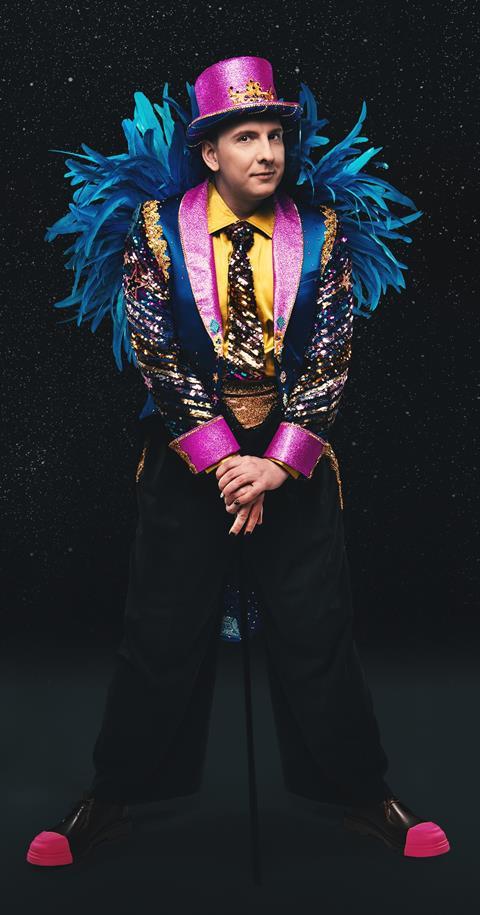
In Late Night Lycett, which will also be recorded in his home town of Birmingham, the comedian will review the week, aided by a mix of local legends, LGBTQ+ heroes and allies, as well as celebrities from comedy, TV, music and film.
Lycett says the prospect of performing live each week is daunting – which is exactly why he wants to make the show.
“I’m a stand-up, that’s my job. So much of pre-recorded TV doesn’t capture that energy,” he says. “Live is such an opportunity, I can feel that naughty energy start to happen again.”
The overarching ambition for the live show is to create a positive series that champions its audience. While Got Your Back has been more “combative”, railing against a company or political issue, Lycett hopes this will be “more celebratory”.
Calling back to Lycett’s flair for social, he is confident that the raucous nature of live programming will mean a real possibility for more online sensations – but he also hopes to pull in significant overnights.
Perhaps surprisingly for someone whose career has developed through online viewership, he is conscious of the importance of more traditional measures for his shows.
“As a viewer, you want to be the one watching it live rather than catching it in a clip after,” he says. “Those social clips are helpful, but ultimately you want people to watch in the moment, otherwise there’s no point in doing it live.”
Avoiding format traps
The freedom of a live show will also allow him and participants to move away from overly formatted entertainment, something he feels commissioners and production companies can be too focused on.
“When it comes to online content in particular, the format must be secondary for comedy talent,” he says.
Pointing to famous YouTubers and TikTok stars, Lycett says that not enough creative freedom is given to talent when they move to TV.
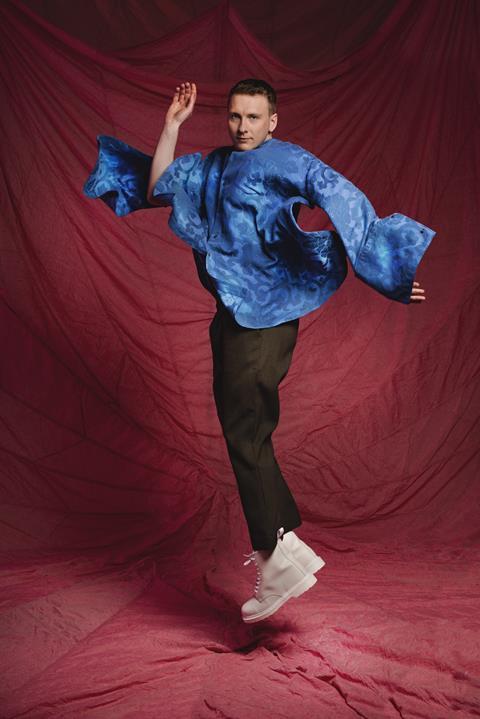
He recently found himself watching hundreds of videos online of Kathy Burke: “I don’t care what she’s doing, as long as she’s being herself, and I think that’s how a lot of people consume content now.
“Audiences just love that person and want to see them in as many different scenarios as possible, but TV gets caught up in asking how it can be formatted.
“Of course, I say that as someone who makes things. It would be amazing if someone gave me a pot of cash and told me to fill a 30-minute slot. It’s not commercial, but as a creative I think you’d make some incredible things that way.”
For Lycett, the Birmingham setting isn’t incidental – it’s a crucial component of the planned show.
“Part of the reason formats can be draining is because so much TV is made in London, and audiences are often the same groups of people being shuttled around,” he says. “I get the sense that it’s just somewhere for people to go. It’s different to a gig experience and the novelty wears off.”
Birmingham is rarely the home for live TV any more, he points out, and he hopes Late Night Lycett will generate a “buzzy energy from the start”. He adds: “The challenge is what we do with that.”
“I try to crew up with as many young people as possible. It really changes the atmosphere and vibe of the shoot”
The impact on the Birmingham TV industry will extend beyond visibility – Rumpus has partnered with C4 to offer a trainee production scheme, comprising four paid production roles, through the show. The scheme is funded by co-production partners Rumpus and Lycett’s own company My Options Were Limited, alongside C4’s 4Skills and Film Birmingham.
“When I make short films, separate from my TV work, I try to crew up with as many people as possible from the Birmingham Young Filmmakers Network – they provide me with some amazing talent,” he says.
“Young people are just so excited to get into the industry, it really changes the atmosphere and vibe of the shoot. It’s good for everyone on production.
“TV can feel like such a rat race sometimes – especially high-volume entertainment shows that are pumping out content. You can forget what an amazing privilege it is to make TV, but having new people adds a sprinkle of excitement. Everyone wants to show off a bit.”
- Late Night Lycett is set to launch live on Channel 4 on Friday 31 March








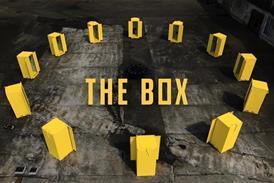

















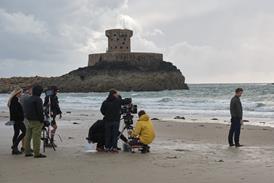
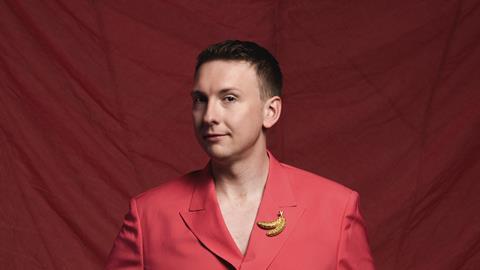






No comments yet